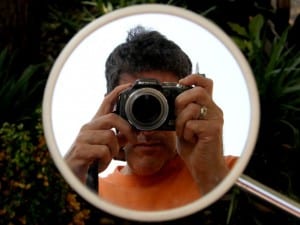Self Plagiarism: 5 Scenarios to Discuss
 Between the recent resignation of Jonah Lehrer and the the converstions/workshops at the 5th International Plagiarism Conference it is safe to say that I’ve had the issue of self-plagiarism, sometimes referred to as “double dipping”, on my mind.
Between the recent resignation of Jonah Lehrer and the the converstions/workshops at the 5th International Plagiarism Conference it is safe to say that I’ve had the issue of self-plagiarism, sometimes referred to as “double dipping”, on my mind.
Can a writer plagiarize themselves? If so, what are the rules for attribution and reuse one’s previous work? Finally, are there times when it is acceptable to reuse old work?
These are not easy questions. Where most of the world seems to be getting a better handle on the concept of traditional plagiarism, with self-plagiarism, much like collusion, there’s still a lot of debate, discussion and resolution to be had.
So I wanted to propose five different self-plagiarism-related scenarios, each with slightly different spins and circumstances. My goal is not to pass judgment, but to get your feedback on these scenarios. So please, feel free to leave your comments, below, on the PT Facebook Page or on Google+. You can also send me a tweet but Twitter may be the wrong format for this conversation.
Without further ado, here’s the five scenarios to consider:
- A news reporter, similar to Jonah Lehrer, has a long career for multiple papers and reuses passages, ranging from short to a few paragraphs, in newer works. This is despite the fact that the passages were originally written for other employers.
- A researcher working in a particular niche releases a new paper but reuses significant verbiage from older works during the introductory and descriptive parts of the new paper. The research itself, however, was new and original.
- A student learning programming reuses code from previous projects without citing the code as old in the source.
- A blogger, who has written for many years for the same site, begins to reuse ideas and even some verbiage from old posts, assuming that his current audience hasn’t seen them.
- Finally, a freelance writer is paid to write custom articles for clients but, instead, reuses large portions of previous articles when writing for new clients.
More than just which of these scenarios are ethical/unethical, I’m interested in the why. If a situation, in your mind, is unethical, what can we do to make it ethical? The reverse is true as well.
Where are the boundaries drawn? That’s what this exercise is supposed to help us figure out.
Want to Reuse or Republish this Content?
If you want to feature this article in your site, classroom or elsewhere, just let us know! We usually grant permission within 24 hours.
